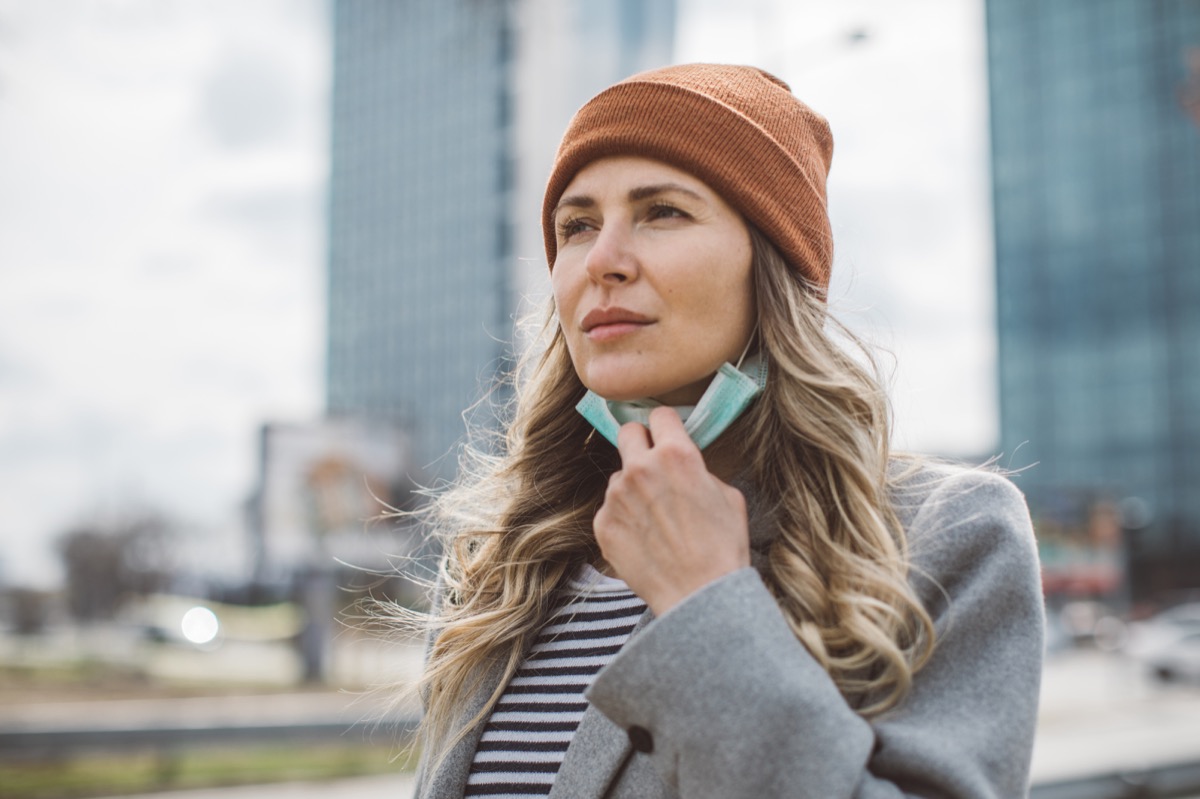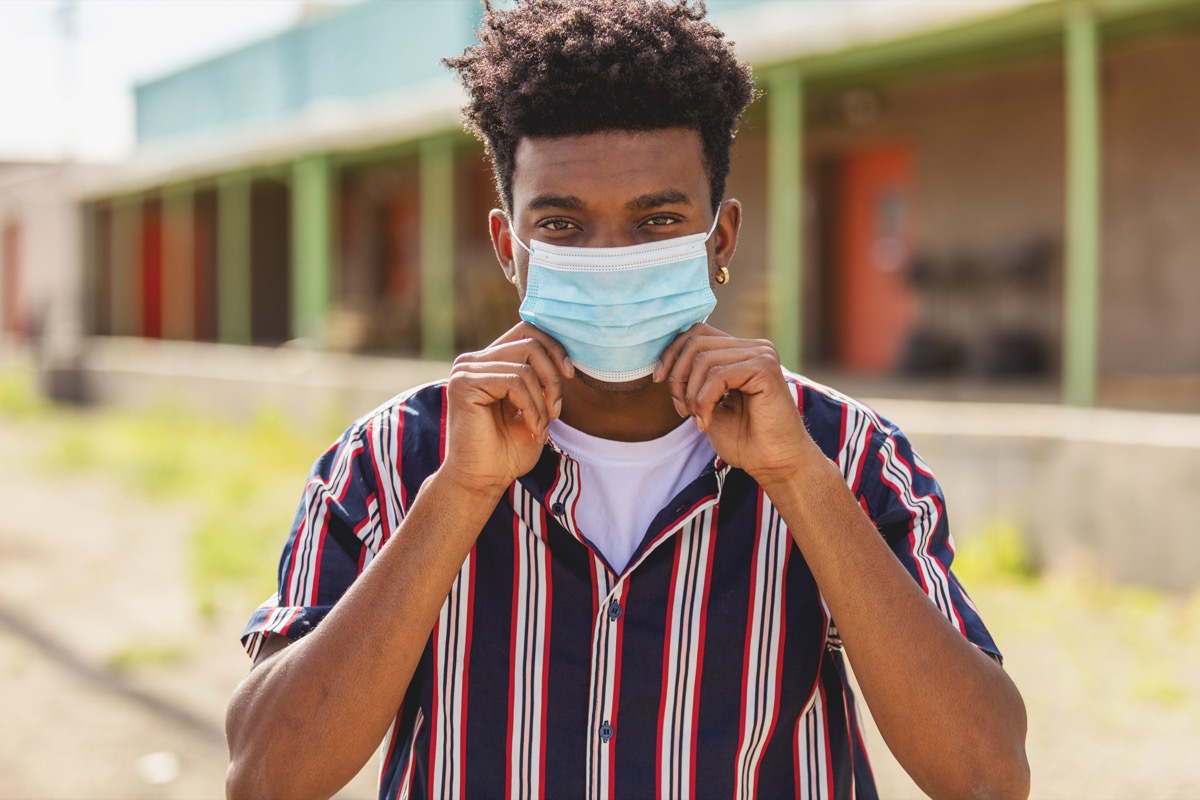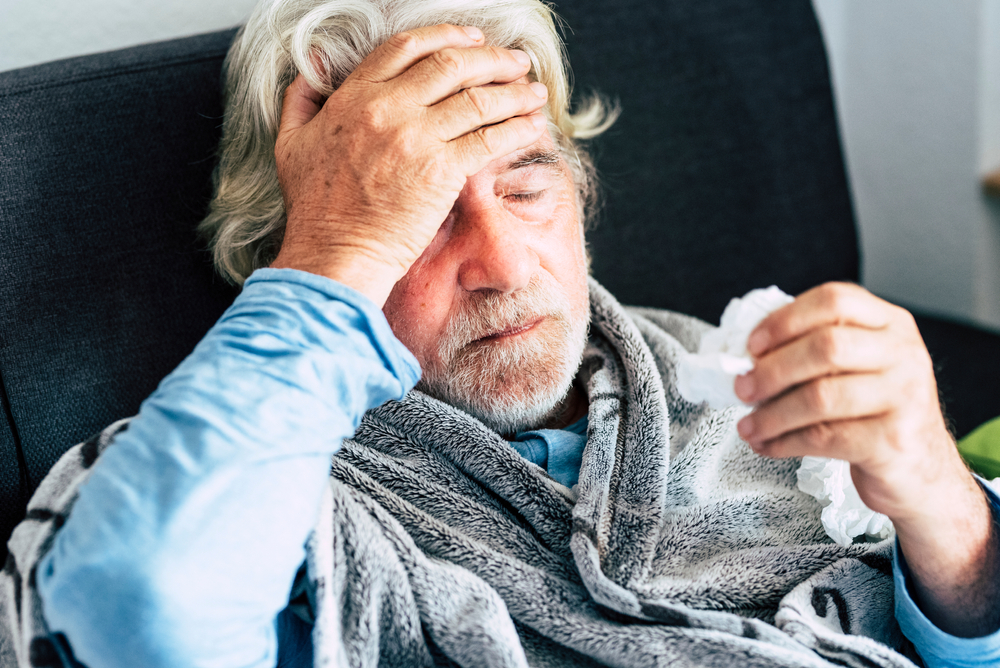Read the original article on Best Life. The earliest stage in the infection process is the latent period, when you have become infected, but the virus is just starting to take root in your body and copying itself. At this point, according to Lee, you are not contagious.ae0fcc31ae342fd3a1346ebb1f342fcb “You aren’t immediately infectious once the COVID-19 coronavirus gets inside your body,” he explains. “It has to get into your respiratory tract cells, hijack your cells’ machinery, and use your cells like cheap motel rooms to reproduce. Once enough new viruses are produced and released, you start shedding the virus and are contagious.” According to Lee, “the range of the latent period is probably two to about 10 days.” And for more on how quickly the virus can spread, check out It Only Takes This Long to Get COVID in a Room With Someone Who Has It. Then, the incubation period is when you have become infected but have not yet developed symptoms. The latent period and incubation period begin at the same time, when the virus first enters your body. But “the latent period is shorter than the incubation period, usually at least 24 to 48 hours shorter,” Lee explains. “One to two days tends to be time it takes for the immune system to recognize that there’s been a mass release of respiratory viruses and to generate reactions that will cause symptoms.” At the incubation stage, the virus is still building up inside you but has not yet taken hold enough to give you noticeable symptoms. However, you are contagious during this time. The Centers for Disease Control and Prevention (CDC) suggest that the incubation period can extend to 14 days, but research suggests it’s usually more like 11 or 12 days. A March study published in the New England Journal of Medicine found that 95 percent of patients observed had an incubation period of 12.5 days or less. Then, a May study published in the Annals of Internal Medicine found that 97.5 percent of those who eventually developed symptoms did so within 11.5 days of exposure. And for more on the signs you could be sick, check out If You Have This Symptom, There’s an 80 Percent Chance You Have COVID. This is the period from the end of the latency period until you have completely dealt with the virus and pose zero risk of passing it on to anyone else. Typically, you are “shedding” the virus—and potentially infecting others—for up to two days before you develop symptoms. “If you are likely to become contagious one to two days before developing symptoms, then on average you will become contagious three to four days after being infected,” Lee notes. “Data from clinical and virologic studies that have collected repeated biological samples from confirmed patients provide evidence that shedding of the COVID-19 virus is highest in upper respiratory tract (nose and throat) early in the course of the disease,” suggest the World Health Organization. “Preliminary data suggests that people may be more contagious around the time of symptom onset as compared to later on in the disease.” And for more on when contagiousness is at its worst, check out This Is When Someone Is Most Likely to Give You COVID, Study Shows. This is the period from the end of the incubation period, when you first develop noticeable symptoms, to when your symptoms clear up. The symptoms are actually the result of your immune system responding and mobilizing against the virus. “Most people with coronavirus who have symptoms will no longer be contagious by 10 days after symptoms resolve,” the experts at Harvard Health Publishing warn. “People who test positive for the virus but never develop symptoms over the following 10 days after testing are probably no longer contagious, but again there are documented exceptions. So some experts are still recommending 14 days of isolation.” And for more on the signs of sickness you need to know, check out The Most Common COVID Symptoms You Could Have.



